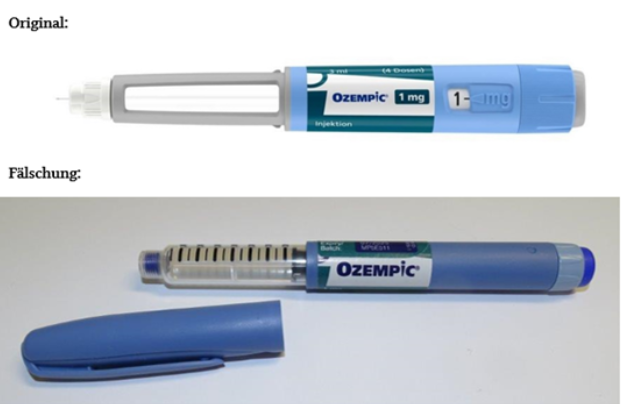The National Agency for Food and Drugs Administration and Control (NAFDAC) has issued a public warning regarding the presence of pre-filled pens falsely labelled as the diabetes medication, Ozempic (semaglutide, 1 mg, solution for injection).
The falsified pens were identified in wholesalers in the European Union and the UK, according to reports from the European Medicines Agency (EMA).
The reports of falsification have emerged amid a surge in demand for Ozempic, resulting in a global shortage. The pens in question carry batch numbers, 2D barcodes, and unique serial numbers identical to those from genuine Ozempic packs.
All affected pens have been successfully recalled and tracked, and there is confirmation that none of these pens have been supplied to patients in the UK.
Furthermore, there is no evidence to suggest that any falsified pens have been dispensed to patients through legitimate pharmacies, and no harm reports related to the falsified medicine have surfaced in the EU or UK.
What you should know
- Semaglutide, the active ingredient in Ozempic, serves as both an antidiabetic medication for type 2 diabetes treatment and an anti-obesity medication for long-term weight management.
- Additionally, it is employed to lower the risk of heart attack, stroke, or death in patients with type 2 diabetes and heart or blood vessel disease.
- Notably, Ozempic (semaglutide) is not registered by NAFDAC.
- While the product is absent from the NAFDAC database, there is a concern that it may have entered the country through informal markets.
NAFDAC urged importers, distributors, retailers, healthcare providers, and patients to exercise utmost caution and vigilance within the supply chain to prevent the importation, distribution, sale, or administration of falsified or substandard medicinal products.
Individuals in possession of the falsified Ozempic product are strongly advised not to use it. Those who have used the product or experienced adverse reactions are encouraged to seek immediate medical advice from qualified healthcare professionals.
To further ensure public safety, NAFDAC calls on healthcare professionals and consumers to report any suspicions of substandard or falsified medicines to the nearest NAFDAC office, contact NAFDAC on 0800-162-3322, or use the email address sf.alert@nafdac.gov.ng.
Additionally, reports of adverse events or side effects related to the use of medicinal products can be submitted to the nearest NAFDAC office or through E-reporting platforms available on the NAFDAC website (www.nafdac.gov.ng).
The Med-safety application, downloadable on Android and IOS stores, also provides a means to report such events.

